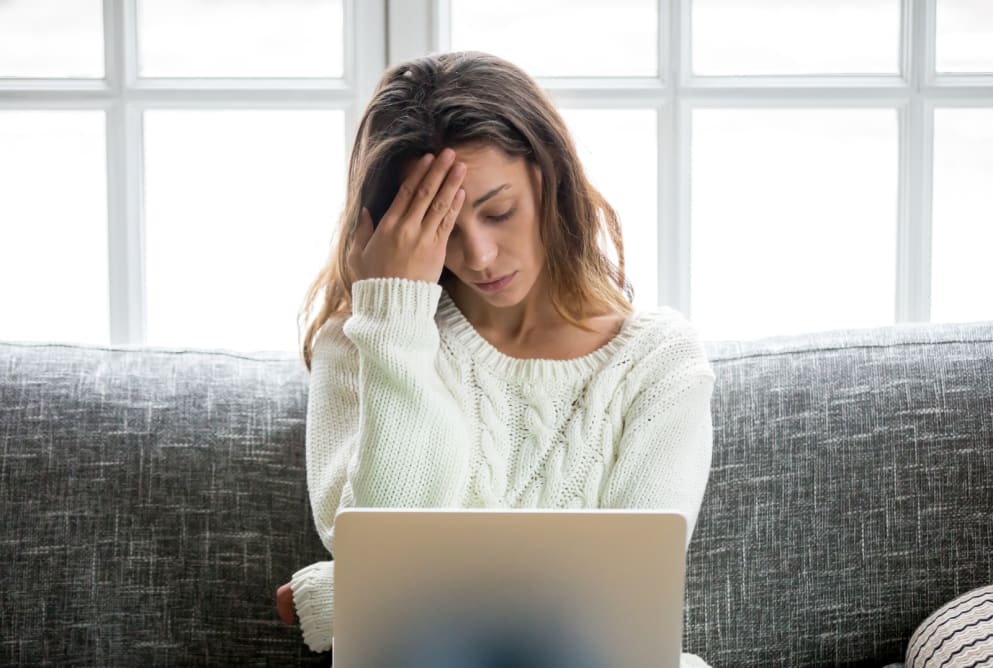We’ve all heard the phrase “we’re all only two pay cheques away from becoming homeless”. Whilst for some, life experiences such as childhood poverty can make the likelihood of experiencing homelessness much higher, it is true that anyone of us could experience homelessness.
But, for many, the reality of this only sank in during the uncertainties of the last year, during the pandemic. Last September, Abri Group ran nationwide research to understand the public's attitude towards homelessness and the impact of Covid-19. Over a third of UK adults worried about losing their jobs, whilst 28% worried about losing their home. And more than two-thirds (68%) think the pandemic will lead to an increase in homelessness.
So, why are over a quarter of UK adults afraid of losing their home? We’ll discuss the reasons why homelessness could happen to any of us. We’ll share the stories of people we’ve supported and explain where you can get help if you’re at risk of homelessness.
What is homelessness?
Homelessness can take many forms, but most people only tend to see people who are sleeping rough. Most people experiencing homelessness are hidden. They survive by sofa surfing, staying in hostels and b&bs, sleeping in cars and squats or other forms of temporary accommodation. We don't know the true number of people who are hidden and homeless.
Homelessness could happen to any of us.
The pandemic has had a huge effect on many, with some facing homelessness for the first time. Here are some of the major life experiences any of us could experience.
Relationship breakdowns.
Many of us have experienced relationship breakdowns. Arguments between partners or with family are one of the leading causes of homelessness. And, in the last year, the increased pressures of lockdown have been a driving factor behind more people seeking housing support.
Sam* left home due to a breakdown in his relationship with his family. He was able to afford a few nights in a hotel but soon ended up sleeping on the streets. A kind security guard found him in an office doorway. The guard directed Sam to the local homeless day centre. Whilst there, he asked them if he could contact us. We went to meet Sam and have been supporting him ever since.
Evictions.
The pandemic has bought the threat of homelessness to many who have never been close to homelessness before. The Joseph Rowntree Foundation reports that 400,000 renters have had eviction notices served or have been told to expect them with the ending of the eviction ban. A million tenants in the UK fear evictions.
Even with the eviction ban in place throughout the pandemic, 207,543 households approached their local council for help with homelessness or the threat of homelessness between April to November 2020. 87% of councils expect a surge in homelessness now that protection measures like the eviction ban have now been withdrawn.
Loss of livelihood.
Losing your job could make experiencing homelessness an unfortunate reality. The Office of National Statistics has reported a 4.8% unemployment rate and the number of people out of work is still expected to grow.
We supported Ed* after he lost his job and began rough sleeping. Ed is a grafter. He always enjoys his work. He loves making things and his skilled work was a huge part of his identity.
Ed had recently moved to a new city, away from his family, to start a new job. Everything was going well until Covid hit. Then, Ed suddenly found himself laid off. He had to move out of his accommodation which came with the job.
He knew his family were struggling to make ends meet. Embarrassed, unwilling to be an extra burden to them, and with nowhere else to turn, Ed slept rough for the first time in his life.
Increases in rent.
Covid has hit many people hard. The economic impact is expected to be felt for some time. A recent Shelter and YouGuv poll show that private renters have fared the worst during the Coronavirus pandemic. A staggering one in four private renting adults fear becoming homeless. That's 2.2 million people.
A quarter of private renters have seen their income decrease in the last six months, with many struggling to pay their rent. To make ends meet, many have borrowed money, cut back on food, skipped meals or cut heating to their home - all to pay the rent.
If you’re at risk of homelessness
The council must help if you're legally homeless or threatened with homelessness.
- Threatened with homelessness – see Shelter’s advice
- Talk to a Shelter Advisor online or via phone
- Get support in Leeds, Bradford or Kirklees
The next time you pass someone on the streets, consider the events that could have led to them experiencing homelessness. A relationship breakdown or job loss. An increase in rent, leading to eviction. It could happen to many of us.
With job losses and the end of the eviction ban, many people are hanging onto their homes by a thread. The pressure on frontline services like Simon on the Streets is expected to grow. Help us continue to support those who are homeless, donate today.
You can support us through fundraising! Take a look at our upcoming events.
*Real name not used
